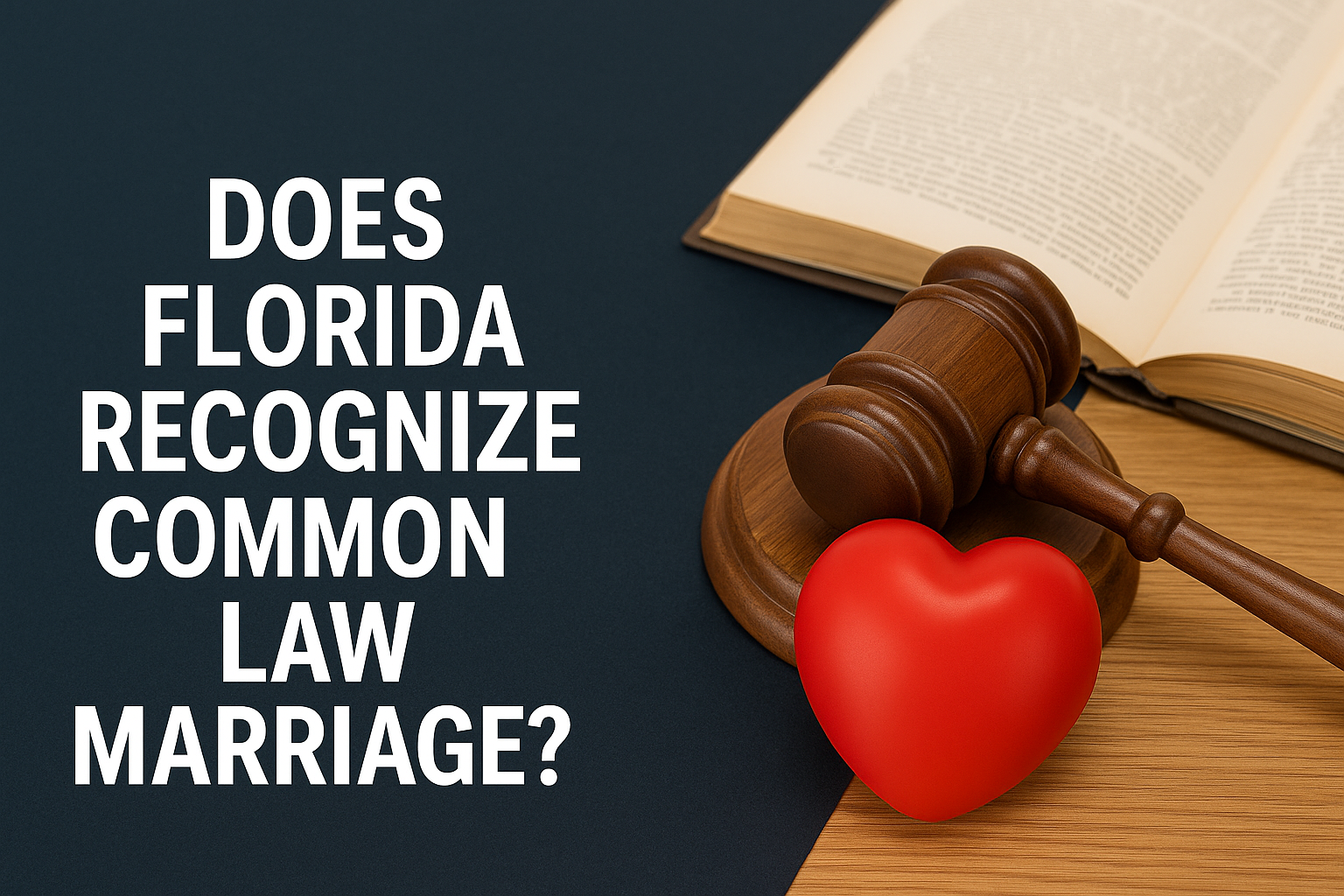Does Florida Recognize Common Law Marriage? What You Need to Know

Many couples live together for years, build lives, and share responsibilities, just like married couples. But what happens when they break up or face legal issues? In some states, couples who live together long enough can be legally recognized as married, even if they never had a wedding or license. This is known as common law marriage.
If you're living in Florida or planning to move there with your partner, it's important to understand how the state treats these relationships. Florida law is different from some other states, and the rules might affect your rights more than you expect.
What Is Common Law Marriage?
A common law marriage is a relationship where a couple is treated like they’re legally married without having a formal ceremony or filing paperwork. This usually depends on how long the couple has lived together, if they present themselves as married, and whether they agree to be considered spouses.
In states that still recognize this kind of marriage, couples can receive the same legal benefits as traditional married couples. These benefits may include property rights, healthcare access, inheritance, and more. But every state has its own rules.
Florida's Position on Common Law Marriage
Florida does not recognize new common law marriages. Since January 1, 1968, the state has not allowed couples to form a common law marriage within its borders. This means that if you live together in Florida, no matter how many years you've been together or how committed your relationship is, you will not be treated as legally married under state law—unless you went through a legal marriage process.
There is one exception. If you entered into a valid common law marriage in another state where it is legally allowed, and then moved to Florida, your relationship might still be recognized. Florida may honor that out-of-state common law marriage under the “full faith and credit” principle.
For a detailed explanation, you can refer to this helpful resource on LawRuleBook.com, which clearly explains how Florida handles common law marriage.
Why It Matters for Unmarried Couples
Many long-term couples in Florida believe they have the same rights as married couples just because they share a home, raise children, or manage finances together. But this isn’t true under Florida law.
If you're not legally married:
Your partner won't automatically inherit your assets
You may not be allowed to make medical decisions on their behalf
You could be excluded from insurance, retirement, or survivor benefits
Any shared property might be at risk if you break up
This legal gap can cause serious problems, especially during emergencies or after death. That's why it's essential to understand what legal protections you do—or don't—have.
How to Protect Your Relationship Legally
Even though Florida doesn't allow new common law marriages, couples still have options to protect themselves. Here are a few simple steps that can make a big difference:
Create a cohabitation agreement – This document outlines how you’ll share property, bills, and responsibilities.
Draft a will – Without one, your partner may not receive anything if you pass away.
Assign powers of attorney – This lets your partner handle financial or medical matters if you're unable to.
Keep clear records – Clearly identify who owns what, and keep copies of all agreements.
By using the right legal tools, you can enjoy many of the same protections as married couples—even if Florida law doesn’t recognize your relationship as a marriage.
Final Thoughts
If you're in a long-term relationship and living in Florida, it’s important to know where you stand legally. The state does not recognize new common law marriages. Simply living together won’t give you the same rights as a legally married couple.
That doesn’t mean you’re out of options. With proper planning and legal support, you and your partner can still protect your home, finances, and future. Taking action now helps avoid confusion and stress later.
To learn more about how Florida law treats unmarried couples, visit LawRuleBook.com in-depth guide on common law marriage in Florida. It breaks everything down in simple terms so you can make informed decisions.
Note: IndiBlogHub features both user-submitted and editorial content. We do not verify third-party contributions. Read our Disclaimer and Privacy Policyfor details.







